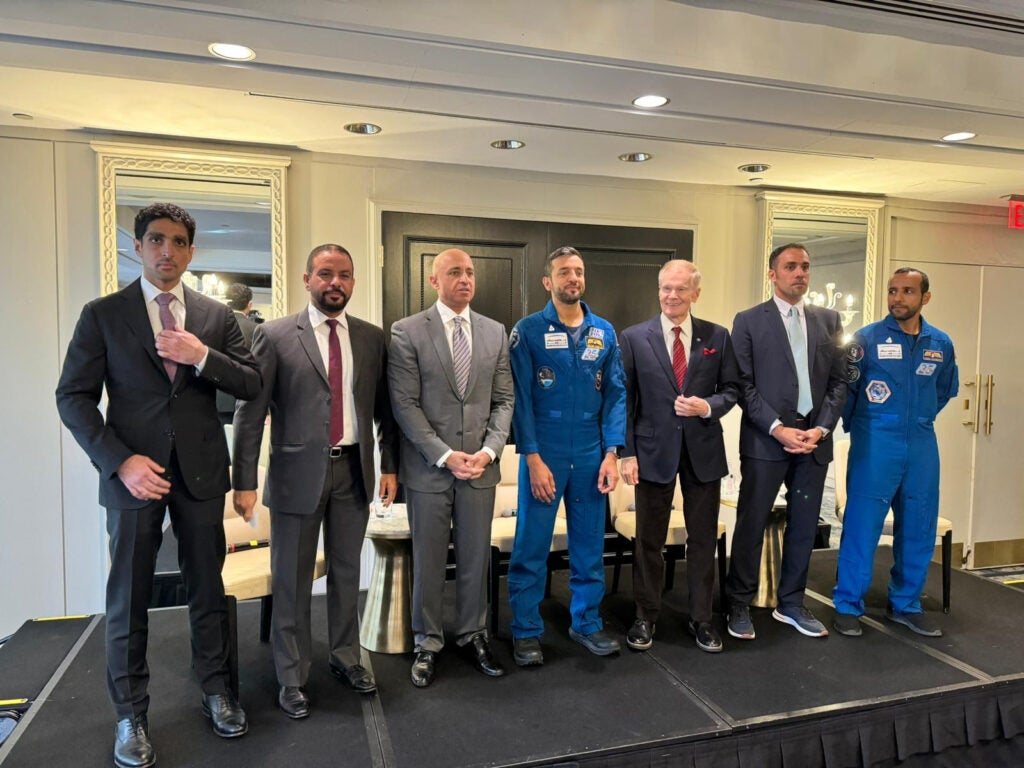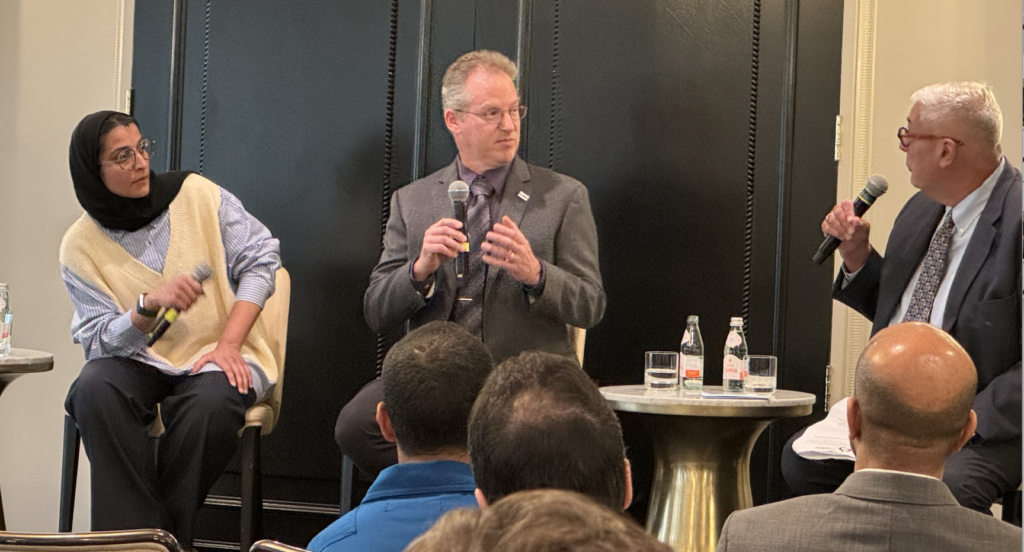
The U.S.-U.A.E. Business Council moderated an industry briefing during a “Celebration of U.A.E.-U.S. Collaboration in Space” that was hosted by the U.A.E. Embassy in Washington, D.C. at the Four Seasons Hotel in Georgetown on Friday, March 8, 2024. This briefing with panelists representing the Mohammed Bin Rashid Space Center (MBRSC), the U.A.E. Space Agency, and the Laboratory for Atmospheric and Space Physics (LASP) at the University of Colorado – Boulder showcased opportunities for U.S.-U.A.E. partnership in the space sector.
Adnan Al Rais, Assistant Director General for the Space Operations and Exploration Sector at MBRSC, lauded the ongoing partnership between the United States and the U.A.E. in the space sector. He highlighted MBRSC’s satellite development program and the planned launch of the Mohammed Bin Zayed earth-observation satellite in late 2024/early 2025 that will monitor environmental changes and water quality, and assist in agricultural development. He discussed their astronaut training program and future manned space missions, including to the Lunar Gateway Space Station – the small space station built by NASA that will orbit the moon. He reviewed objectives of the Mars 2117 mission, which seeks to establish the first inhabitable settlement in Mars by 2117. He highlighted potential areas for collaboration, such as developing robotic capabilities, analog missions to develop and advance life sciences capabilities, and the successful collaboration that led to the airlock for the Lunar Gateway that will be built by the MBRSC in partnership with NASA. Adnan reiterated MBRSC’s desire for long-term partnerships that involve working hand-in-hand to support these initiatives.

Heyam Alblooshi, Space Systems Assembly and Testing Senior Engineer at the U.A.E. Space Agency, applauded the team working on the Asteroid Belt Mission at the U.A.E. Space Agency alongside researchers at the LASP at the University of Colorado – Boulder. She stressed the need for more STEM graduates and engineers in the U.A.E. to continue the work in the space sector and emphasized their desire to learn from American partners.
Pete Withnell, Project Manager at LASP, added that the one of the high-level objectives of the Asteroid Belt Mission is to understand the evolution and origin of water-rich asteroids, which are the building blocks of the solar system and the planet. This understanding of asteroids will in turn help scientists better understand the evolution of our own planet, Earth. He appreciated the enthusiasm and curiosity of Emirati engineers, and commended how well they have integrated with LASP researchers and built a homogenous team.
Mohsen Al Awadhi, Program Director of the Emirates Mission to Explore the Asteroid Belt and Director of the Space Missions Department at the U.A.E. Space Agency, cited opportunities for industry collaboration, such as mechanical parts and systems. He spoke about the U.A.E. Space Agency’s “Space Means Business” campaign geared towards generating private sector participation in the program, including from startup companies. Mohsen stated that the U.A.E. Space Agency is already utilizing American technology companies to help with data storage, including Amazon Web Services . He emphasized that knowledge transfer is the main objective for partnership with U.S. industry and that export controls are also an important consideration.
Amer Al Sayegh Al Ghafri, Assistant Director General of MBRSC, concluded the conversation by advising U.S. companies that transparency is key when pursuing partnerships with the U.A.E. so they can move forward together and know what capabilities they will be able to provide to such projects.
For questions about the Business Council’s work in the space sector, please contact Amira Siddiqi at asiddiqi@usuaebusiness.org.
